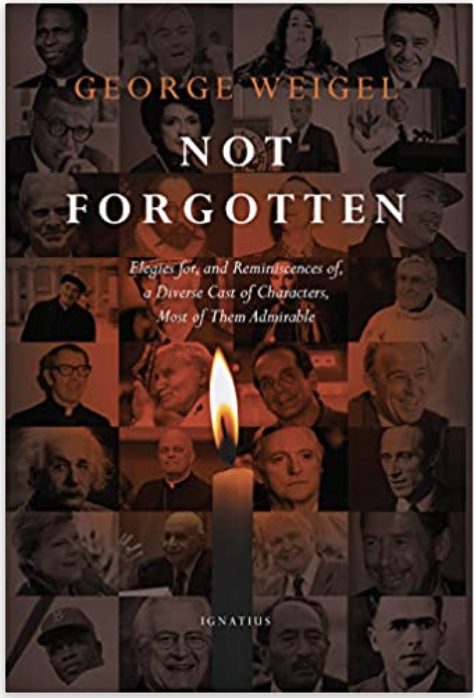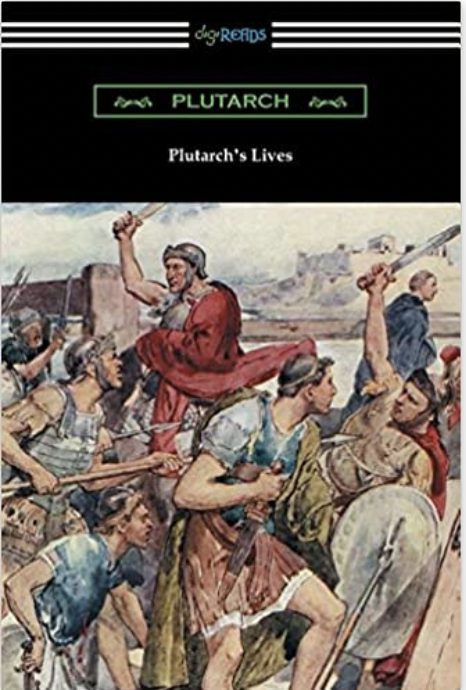Unparalled Lives

George Weigel plays Plutarch in his new book, 'Not Forgotten'. Tweet
Highlights
Accounts of parallel lives are deceptively difficult to compile, as Daniel J. Mahoney notes in his 'First Things' review of George Weigel's new book.
George Weigel's 'Not Forgotten: Elegies for, and Reminiscences of, a Diverse Cast of Characters, Most of Them Admirable' is 'a tribute to friendship'.
Weigel’s sketches and memorials are largely tributes to the enduring power of 'righteous and noble living'.
Moral clarity, Mahoney writes, "may just save us from Catholic Lite and self-destructive progressivism..."
Why are collections of biographical sketches so appealing? Writers have been seeking to gratify the readership for these kinds of books for thousands of years, at least since Plutarch.
Accounts of parallel lives are deceptively difficult to compile, but, as Daniel J. Mahoney notes in his First Things review of George Weigel’s Not Forgotten: Elegies for, and Reminiscences of, a Diverse Cast of Characters, Most of Them Admirable, they do require some cohering plan. Without that, any catalogue of “lives” would be the dullest of list books. Weigel’s artfulness is in assembling and illuminating lives that have a unifying quality that enhances a specific virtue—in this case, the art of living wisely. It’s a skill not every man, not even every good man, accommodates easily. As Mahoney remarks,
Weigel’s collection “is a tribute to friendship in the Aristotelian sense…”
“In Not Forgotten, Weigel splendidly recovers the art of admiration, with a few warnings of what to avoid (what our forebears called the via negativa) thrown into the mix. The latter include Pete Seeger’s choice of the ‘hammer (and sickle)’ and Andrew Greeley’s tiresome and all-too-predictable division of the world into good ‘progressive’ Catholics and mean-spirited ‘conservative’ ones. But the cautionary portraits are never mean-spirited even if they remind us of necessary truths. Weigel’s sketches and memorials are largely tributes to the enduring power of ‘righteous and noble living’—and to thinking that does full justice to the sobering limits and humanizing possibilities (and the quiet but abundant ‘rumors of angels’) that, in every age, inform the human condition.”
Weigel’s collection, Mahoney notes, “is also a tribute to friendship in the Aristotelian sense—to friendship informed by serious reflection and a shared commitment to virtue, intellectual and moral. But these classical friendships are leavened by humor, affection, and a Christian appreciation of common humanity and of inevitable human foibles, imperfections, and eccentricities.”
This, of course, is the reason why these semi-hagiographical collections, when assembled with sensitivity, work so well: by showing the same moral quality through similar, but different prisms, that quality is given a depth that may not be apparent in a one-dimensional view. The resulting sense of enriched moral clarity, Mahoney writes, “may just save us from Catholic Lite and self-destructive progressivism if we only have the nerve to combine courage with equanimity…”








